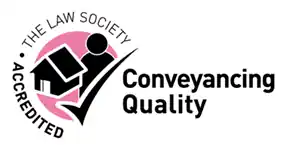They can also help you to:
- recover the cost of replacing your possessions where they have been damaged or destroyed;
- claim a rent rebate where all or part of your property has been rendered inhabitable;
- support you in making a personal injury claim where the condition of your home has made you or a member of your household ill; and
- obtain appropriate recompense for any stress or inconvenience you have suffered and any adverse impact on your quality of life.
We offer a free, no obligation consultation to determine whether a claim may be possible and can usually act on a no win, no fee basis so you can proceed without having to pay any upfront costs and with no obligation to pay anything at all unless your claim is successful. Call us now on 0800 195 6412 to find out more or fill in our online enquiry form. We offer a free interpretation service for Polish clients who wish to make a claim, but who would feel more comfortable doing so in their own language.
Our service
Our lawyers can help you to make a claim where you live in rented accommodation and your landlord has failed to carry out repairs to address:
- internal or external structural problems;
- damp or mould;
- water damage caused by constant leaks;
- roof, guttering or drainage problems;
- burst pipes;
- broken central heating, storage heaters or heating water systems;
- electrical faults;
- boiler defects;
- damaged windows or doors;
- faulty kitchen appliances;
- broken sinks, baths or toilets;
- damaged cupboards or furniture;
- badly worn carpets or curtains; or
- rodent or insect infestation.
Eligibility to make a claim
You can make a claim where your tenancy agreement, or a piece of legislation (i.e. government-made law), imposes an obligation on your landlord to carry out certain repairs and they have failed to comply with this obligation. However, before a claim can be made you must have informed your landlord that repairs are required and have also given them a reasonable period of time in which to carry them out – the amount of which will vary depending on the nature of the repairs required and their relative urgency. Your landlord will not usually be required to carry out repairs to fix damage that you or another member of your household has caused.
You must also start your claim within six years of the problem first arising. However, note that where you are seeking compensation for personal injury, this element of your claim must normally be started within three years of you realising that your home was making you ill.
Additionally, you must also usually have complied with a special set of rules which apply to housing disrepair claims and which are set out in a document produced by the Ministry of Justice, called the ‘Pre-Action Protocol for Housing Condition Claims’ (in England) or the ‘Pre-Action Protocol for Housing Disrepair Cases’ (in Wales). Where you are making a claim for personal injury, for example in respect of asthma or some other respiratory condition which has been made worse by damp or mould, you must also follow the rules set out in the ‘Pre-Action Protocol for Personal Injury Claims.’
The aim of both protocols is to try to get your claim resolved without the need to go to court.
How we can help
Drawing on our extensive knowledge of housing disrepair and personal injury law, our solicitors in Crewe can help you to negotiate with private landlords, housing associations and local councils in order to bring your property up to a reasonable standard of repair and to claim compensation in a stress free and hassle free way.
We will review your circumstances and tell you whether we think a claim is possible. Where necessary we will commission a professional home survey and arrange for you to be examined by a medical expert who can verify that an illness you have developed is linked to repair problems or that your housing experience has made a pre-existing health condition worse.
We will also help you to gather evidence of your financial losses, for example where you have suffered damage to belongings and have had to pay to purchase a replacement (whether in the form of a new or second hand item), or where you have had to commission and pay for urgent works, for example to repair the structure and exterior of your property or to rectify repair faults.
In the majority of cases, we are able to settle housing disrepair and personal injury claims without the need to go to court. We do this through intensive negotiations and the appointment of an independent mediator where required. For claims against housing associations and local councils, we can also make use of internal compliants procedures and the Housing Ombudsman.
In those cases which do end up requiring court action, we will be there to support you throughout the process and to ensure that you achieve the best outcome possible.
Contact us
To find out more, please contact us on 0800 195 6412 or fill in our online enquiry form and we will contact you. We can help wherever you are based in England and Wales and particularly where you live in an area local to our offices, such as Crewe, Northwich, Nantwich, Macclesfield, Sandbach, Newcastle-under-Lyme or Stoke-on-Trent.
What to bring to your first appointment
When attending an appointment, you should try to bring a copy of your tenancy agreement, together with any correspondence that you have regarding your repair issues (whether with your landlord, an environmental health officer or anyone else). It would also be helpful to see any photographs that you have taken of the damage that has been caused, receipts for any possessions that you have had to replace and letters from your GP or a hospital consultant regarding any health conditions that you may have.
You can make a personal injury claim whenever you have been physically or psychologically injured in an accident for which someone else was to blame or where an injury has occurred as a result of a criminal act in which you were an innocent bystander.
A claim can also be made for injuries suffered by a close relative where they are unable to claim for themselves, for example due to their age, the severity of their injuries or because they have since passed away.
The type of things you can claim for will vary depending on how your injuries were caused, who you are claiming against and whether your claim is governed by English law or the law of another country, for instance where you have been hurt in an accident abroad.
In most cases a claim can be made for:
In the event of a fatal accident, a claim can usually be made for:
In the event of a criminal act resulting in injury, a claim can usually be made for:
any associated loss of earnings or out of pocket expenses.
The amount of compensation you receive will vary depending on a number of factors, including:
Compensation for minor injuries from which a full and relatively speedy recovery can be expected will typically command payments of a few thousand pounds whereas the compensation for more serious life changing or life threatening injuries can result in payments running into hundreds of thousands if not millions of pounds.
Where a claim for compensation is made against the government then the amount of compensation you receive will usually be capped. This will be the case where a claim for injuries arising out of a violent criminal act is made to the Criminal Injuries Compensation Authority and for asbestos related mesothelioma claims made under the Diffuse Mesothelioma Payments Scheme where neither the responsible employer nor their insurer can be found.
Yes. Whenever a personal injury claim is made consideration will be given to whether there is anything that can be done to help you recover more fully or more quickly. Where we believe that there are things which could help we will discuss these with the person or organisation we are proposing to sue on your behalf (or, in many cases their insurer) to see whether they would be prepared to pay for these things to give you the best chance of getting your life back on track as soon as possible.
Our request for help has to be considered seriously because under the rules which govern personal injury claims there is an obligation to assess at any early stage, in every case, whether you would be likely to benefit from any further medical treatment, rehabilitative services such as physiotherapy or counselling, mobility aids and specialist equipment or professional support while you attempt a phased return to work. These rules are set out in the Personal Injury Pre-Action Protocol and the Personal Injury Rehabilitation Code.
Generally speaking where we ask for advanced funding we get it, particularly in cases involving serious injury where the party we propose to sue is clearly at fault and acknowledges this.
We can also often secure a voluntary payment to help tide you over financially if you are beginning to struggle with a drop in wages and increased overheads. Alternatively we can seek a compulsory interim payment order from the court which will entitle you to an early payment on account of any compensation you are likely to receive.
Yes. We are always happy to provide a second opinion where you have been told by another lawyer that your case is not strong enough to proceed or where they believe the time limit for bringing a claim has expired and there are no exceptional circumstances justifying an extension.When you come to see us we will assess your case afresh and if we believe a claim is possible we will tell you
The process for making a claim will vary depending on a number of factors, including the type of injury you have suffered, whether the person or organisation we say is to blame admits responsibility and whether the amount of compensation we are trying to claim on your behalf is agreed or disputed.
Broadly speaking, when you ask us to deal with a claim we will:
signpost you to professional advisors who can help you to manage your money and set up a personal injury compensation trust if necessary to preserve your entitlement to claim means tested state or local authority benefits.
Possibly, it depends on whether the person or organisation we say is to blame for your injuries admits they were at fault and agrees to pay an acceptable amount of compensation. If they do then an out of court settlement will be a real possibility. However, in other cases a court hearing will be needed to determine your claim and decide whether or not a compensation award ought to be made.
Where attendance at court is required this should not be a cause for concern as we will be there to support you. We will explain the process, ensure your case is fully prepared and that it is presented in the best possible light to maximise your chances of walking away with a positive result.
In most cases there will be no upfront costs to pay to make a personal injury claim. This is because in the majority of cases we can deal with your claim under a conditional fee arrangement, more commonly known as a ‘no win, no fee’ deal. Full details of how this type of funding arrangement works can be found in our costs information guide, but in essence under such an arrangement we will agree not to charge you for our services if we are not successful in recovering compensation on your behalf and you will agree that if we are successful we can take a small slice of your compensation by way of reward.
Insurance will be arranged to cover any other costs which may arise and which should mean that, unless the claim you have made is fraudulent or bad in some other way, you will not be exposed to any financial risk even if your claim for compensation ultimately fails.
The time it takes to deal with your claim will depend on a number of factors, including whether the person or organisation we are holding responsible for your injuries admits they were at fault and agrees with our assessment of the compensation you are entitled to. The severity of your injuries will also be relevant, particularly where it is not immediately clear what the long term prognosis is and therefore how much ongoing care and financial support you are likely to need.
By way of example, a straightforward claim for compensation for an injury arising out of a road traffic accident, accident at work or accident at a property may take between two to 12 months to resolve where fault is admitted and the amount of compensation sought is relatively low. However, an injury arising out of a slip, trip or fall or dog bite or animal attack which results in serious injury giving rise to a substantial compensation claim may take one to three years to resolve or even longer where the case is particularly complex.
You should not be put off making a claim because of the time it may take to deal with. Once the wheels have been put in motion it is often possible for us to secure a payment on account of any compensation you are likely to receive to ensure that you can cope financially while your claim is being assessed. Immediate financial help can also usually be obtained to pay for things like private medical treatment, physiotherapy, counselling services and mobility aids which can greatly improve your chances of making a good recovery.
Yes. All personal injury claims are subject to time limits and if you fail to claim within the limit that applies to your case then there is a high probability that a claim will not be possible.
The usual time limit for the vast majority of cases is three years from the date on which your injury occurred or the date on which you became aware of the injury where it took some time to become obvious. However, there are some notable exceptions where a different time limit will apply, including:
These time limits are strictly enforced so you should take legal advice as soon as possible.
Yes, if you are on means tested state or local authority benefits and we believe that a personal injury compensation trust would be appropriate, which will generally be the case if you have received a compensation payment of more than £6,000. This is because under the rules governing means tested benefits you and anyone living in your household can only have access to up to £6,000 in capital or savings without your entitlement to those benefits being reduced and must in no circumstances have access to more than £16,000 or your benefits will be stopped.
A personal injury compensation trust is a device that can be used to help prevent your benefit payments being affected by the compensation you have received. It works by transferring your compensation into a trust which is operated by people independent of you who will manage it on your behalf and drip feed you funds as and when needed.
We will tell you where we think a personal injury compensation trust may be appropriate and help you to make arrangements for one to be established. This must be done within 52 weeks of you receiving your final compensation payment or an interim payment as appropriate.











